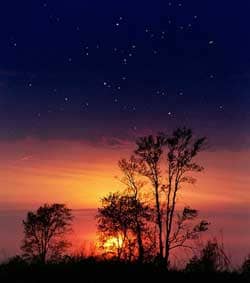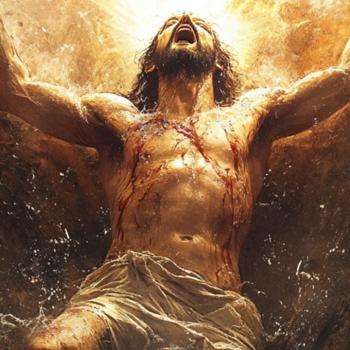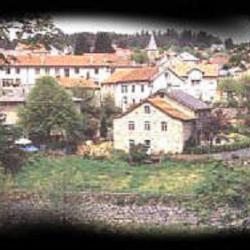By Charles Cummings, O.C.S.O.
 John Evelyn, the 17th-century British diarist, noted that a person's happiness both in time and in eternity seems to be dependent on a garden. He wrote: "As no man can be very miserable that is master of a garden here, so will no man ever be happy who is not sure of a garden hereafter."
John Evelyn, the 17th-century British diarist, noted that a person's happiness both in time and in eternity seems to be dependent on a garden. He wrote: "As no man can be very miserable that is master of a garden here, so will no man ever be happy who is not sure of a garden hereafter."
Spirituality has often been more concerned with the garden hereafter: that paradise of delight that corresponds to the kingdom of heaven. There are, I suppose, spiritual masters who would say that the gardens cultivated here on earth, which give us so much satisfaction, are only a pale image of the delights God has in store for those who love him. In this way they would try to orient our affection away from earthly gardens, and from earth itself, toward the hereafter, where alone can be found lasting happiness.
On the other hand, there are many who have discovered that their spiritual life is bountifully nourished by exposure to the nobility and beauty of nature. God seems powerfully present in the quiet of forest, lakes, mountains, desert, ocean, or flower garden. These people also look forward to the garden hereafter, the new heaven and the new earth. However, they believe "the expectation of a new earth must not weaken but rather stimulate our concern for cultivating this one."
The garden we cultivate here on earth is not entirely separable from the garden hereafter, though we rightly distinguish between them. I suggest that Catholic spirituality has something to learn from and contribute to the current ecological movement. Spirituality can profit from a new awareness of the numinous quality of the cosmos. As concern for the present ecological crisis grows, spirituality must be there to support activists in their work of gently shepherding all creation into "the glorious freedom of the children of God" (Rom. 8:21). These tasks belong to what we may call "eco-spirituality."
Fabric of the Cosmos
In general, Christian spirituality deals with the dynamics of one's personal relationship to God the Father, through Christ Jesus, in their Holy Spirit. The human spirit is able, by grace, to know and love the triune God. God is revealed to the receptive human spirit in diverse ways, for the Creator has left traces of the divine image throughout the whole fabric of the cosmos. Divine life and activity extend into all reality.
The term "eco-spirituality" draws attention to the cosmos as a place of God's self-revelation. Ecology studies our total environment and all the living or non-living creatures that dwell with us in this cosmic house (oikos/house). Eco-spirituality studies our relationship to God as it develops in the context of our relationships with the cosmos in its totality.
The challenge of eco-spirituality is to find God within -- not apart from -- this totality, and to view the totality as a dynamic, interdependent process centering on the risen Christ and growing to perfection in love. "Thus you may have strength to comprehend with all the holy ones what is the breadth and length and height and depth, and to know the love of Christ that surpasses knowledge, so that you may be filled with all the fullness of God" (Eph. 3:18,19).
Although the term is new, eco-spirituality as a perspective on the spiritual and material fabric of the cosmos is an established part of the Judeo-Christian tradition. The ancient Hebrew psalmist, sensing the presence of God in the world of nature, called on the whole cosmos to celebrate its Creator:
Let the heavens rejoice and earth be glad,
let the sea and all within it thunder praise,
let the land and all it bears rejoice,
all the trees of the wood shout for joy
at the presence of the Lord
for he comes, he comes to rule the earth! (Ps. 96:11-13)
It is possible to find such "seeing" among professional scientists, especially physicists and biologists, today. Their vision of the cosmos as an emerging, integral system of interconnected and interdependent parts leaves them stunned with beauty and wonder. From such enchantment with nature, it is only a short step to religious experience and to the considerations of eco-spirituality.
Spreading Crisis
Our beautiful planet does not present a totally enthralling spectacle today. We have all heard about the major ecological problems: air pollution; holes in the ozone layer; nitric- or even sulphuric-acid rain; soil erosion; contamination of fresh water and of the oceans; deforestation, especially of tropical rain forests; hazardous waste disposal; and the total destruction of many biological species. What is threatened is the biosphere on which present and future generations depend.




